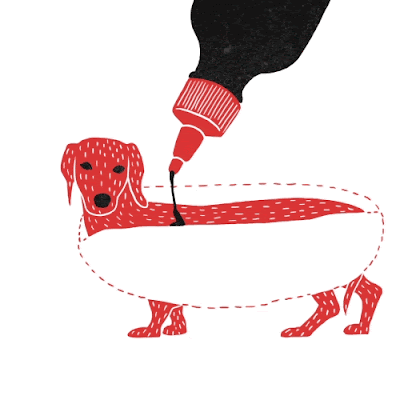New from NPR! 睡眠學習不是夢,只是不能學很多...
下載聲音檔請點我
下載填空卷請點我
下載解析版請點我
Can You Learn
While You're Asleep?
Heard on Morning Edition
Heard on Morning Edition
Next, we have the real world version真實世界的版本 of a widespread fantasy普遍的夢想- the idea that you could somehow learn while sleeping, that students
returning to school this time of year could prep for a test in bed透過睡覺準備考試, that busy adults might play a tape and learn French during nap睡午覺(打盹). Real life does not really work like the fantasy.
But Shankar Vedantam, NPR's science correspondent科學特派員 who looks at
interesting
social science社會科學 research, has found some research that points in that direction.
Shankar, good morning.
SHANKAR VEDANTAM, BYLINE: Hi, Steve.
INSKEEP: So what's the idea here?
INSKEEP: So what's the idea here?
VEDANTAM: Well, we've known for a very long time
that sleep can help you consolidate整合/鞏固 the things that you have already learned. So I spoke
with a sleep
researcher睡眠研究者. Her name is Ilana
Hairston. She's at the Academic College of Tel Aviv(以色列)特拉維夫大學. Here's how she put it to me.
DR. ILANA HAIRSTON: If you learn something in the
morning, in the evening your learning has improved. But it's also been shown
this effect
can be actually
enhanced強化 if you take a nap
during the day.
INSKEEP: Wait a minute. So you're saying you learn
something, then you take a nap, and after the nap you better understand what
you learned before the nap. That's what she's saying?
VEDANTAM: That's exactly what she's saying? Now the
question that she wanted to answer is, it's clear that sleep can consolidate
what you have already learned, but is it possible you can actually learn
something new
while you're sleeping? And, of course, that goes right back to the fantasy you laid out at the
top of this之前一開始說到的, which is a fantasy
that I had throughout my student days, which is I could just stick a pair of headphones
on my ears, go to sleep, wake up and say hey, I've learned the history
of the Ming Dynasty明朝.
INSKEEP: OK. Has anybody tried this?
VEDANTAM: So, Hairston has conducted an experiment
that I would have to say is the first baby step第一步(非常初步的行動) in that direction. She's found that the brain can learn fairly
simple things while people are fast
asleep熟睡. So here's the experimental setup計畫/方案. She and her colleagues bring a bunch of people into the laboratory, a sleep laboratory睡眠實驗室, hook them up with meters連上儀表測量器. Now, when the volunteers are completely
fast asleep, the researchers sprayed them with a pleasant smell - like the
smell of shampoo or deodorant除臭劑/止汗劑.
INSKEEP: OK.
VEDANTAM: And they found that the volunteers took a deep
breath深呼吸. And that's exactly what people do when they're
awake. Now, every time there was a pleasant smell, the researchers also played
a beep嗶嗶聲, like a high-pitched beep高尖的嗶嗶聲, right? And they paired the pleasant smell what the beep repeatedly重複地以香味搭配高尖的嗶嗶聲. And they found that after 10 or 15 times of doing
this, when they just played the high-pitched beep the volunteers took a big
breath.
INSKEEP: This is like that famous experiment with Pavlov and the dog巴洛夫與狗(制約實驗,搖鈴給食物,狗兒聽鈴聲會留口水,搖鈴電擊,狗聽鈴聲會戰慄), and the dog's mouth watering when the bell
goes off and that sort of thing.
VEDANTAM: Exactly. So it's called conditioning條件反射 and it's a very basic form of learning. Now,
by the way, they also did the same thing with unpleasant smells. They used rotten
fish and they had a low pitched beep and this time they found that
the volunteers took a smaller breath when they had the unpleasant smell.
Now, the million-dollar question 最重的關鍵問題is, it's clear that the brain can learn to associate連結/聯想 smells and sounds while it's asleep. But does this learning carry over into when the people are actually awake? So the researchers waited for the volunteers to wake up and then they played these sounds to the volunteers and they found that when they played the high-pitched beep the volunteers to took a big breath. They played the low-pitched beep, the volunteers took a small breath.
Now, the million-dollar question 最重的關鍵問題is, it's clear that the brain can learn to associate連結/聯想 smells and sounds while it's asleep. But does this learning carry over into when the people are actually awake? So the researchers waited for the volunteers to wake up and then they played these sounds to the volunteers and they found that when they played the high-pitched beep the volunteers to took a big breath. They played the low-pitched beep, the volunteers took a small breath.
INSKEEP: OK. So does carry then, over to when
you're awake. But that's a very, very simple - very, very basic
form of learning. Probably a little bit simpler than learning the Ming Dynasty.
VEDANTAM: It is a lot simpler than learning the
Ming Dynasty. There were two interesting things about this. The first is
the volunteers had no conscious recollection清醒的回憶 of having learned anything at all. They woke up, they heard the sounds and
took either a big breath or a small breath.
VEDANTAM: Now, I asked Dr. Hairston about what the practical
implications實際的意涵 were, how quickly
students would be able to utilize this research to essentially supplant
their entire educations, here's what she told me.
HAIRSTON: Medical students can learn a list of body organs一連串身體的器官. They can perhaps pair their different origins with smells.
So you pair the thalamus視神經床/丘腦 with the smell of lemon, and the hypothalamus丘腦下部 with the smell of orange blossom橙花. When you wake up, you will have a better
recollection of that list.
INSKEEP: So they haven't quite figured out the
practical implications.
VEDANTAM: Well I think the practical implications
in terms of actually supplanting取代 an entire education is way down the road還有好長一段路要走. But what this is, is a proof證據 of concept study that shows that at least at a basic
level the brain is capable of learning new stuff while you are completely
fast asleep.
INSKEEP: NPR science correspondent Shankar Vedantam, who is refusing to confirm or deny whether he reported this entire story while asleep.
INSKEEP: NPR science correspondent Shankar Vedantam, who is refusing to confirm or deny whether he reported this entire story while asleep.
Shankar, thanks very much.
VEDANTAM: Thanks, Steve.











I tried that, but couldn't sleep well. Made me tired the next day.
回覆刪除It never works for me either. It disrupts my sleep.
回覆刪除